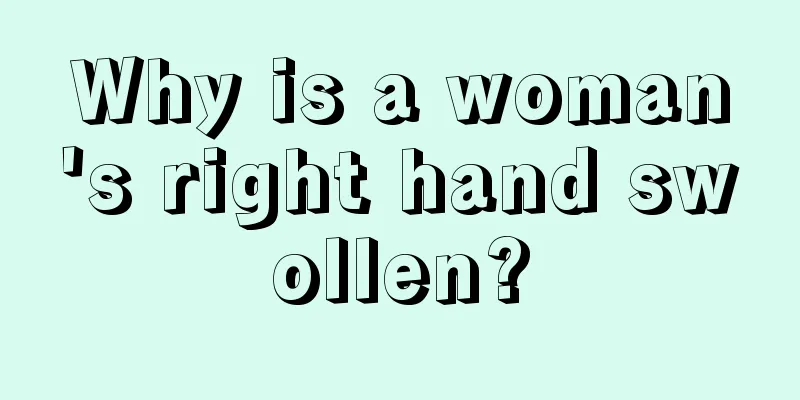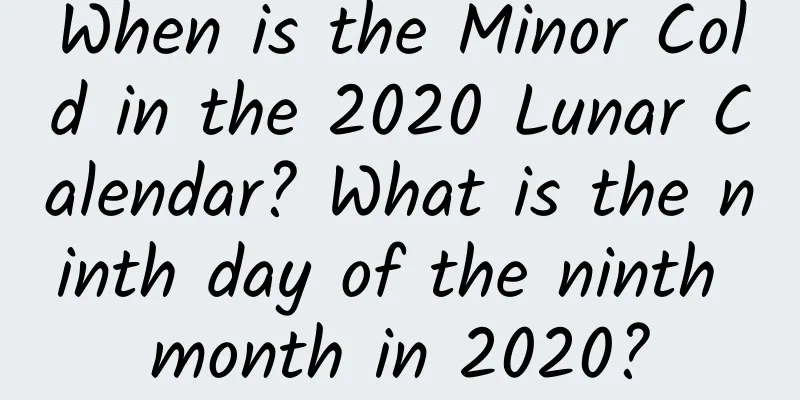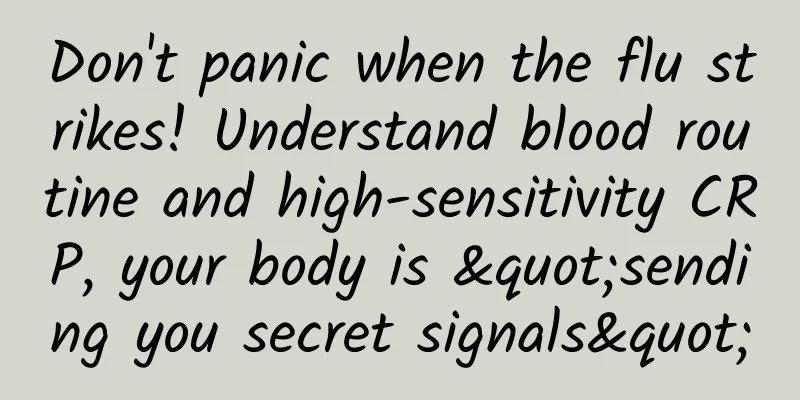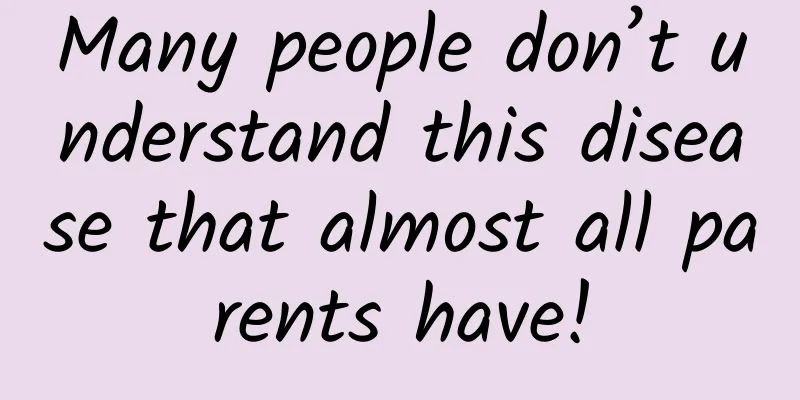8 kinds of drugs including Pediatric Phenol Amine Granules have been cancelled. Check if you have any in your medicine cabinet.
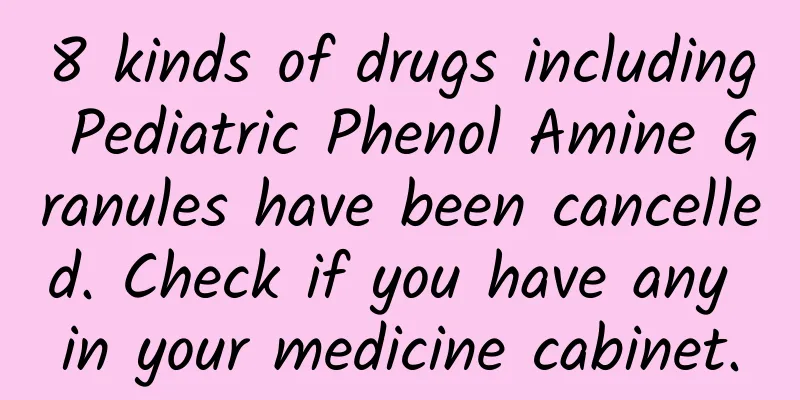
|
Recently, the State Food and Drug Administration issued an announcement to cancel the drug registration certificates of eight varieties, including Pediatric Phenylbutamol Granules. What does it mean to cancel the drug registration certificate? Why do we need to cancel the drug registration certificates of these 8 varieties? Today, let’s interpret it in detail! What does it mean to cancel a drug registration certificate? First of all, let us understand what is a drug registration certificate? Article 24 of the Drug Administration Law of the People's Republic of China (2019 Edition) stipulates that drugs marketed in China must be approved by the drug supervision and administration department of the State Council and obtain a drug registration certificate. When applying for drug registration, true, sufficient and reliable data, information and samples must be provided to prove the safety, effectiveness and quality controllability of the drug. Article 25 stipulates that for drugs applied for registration, the drug supervision and administration department of the State Council shall organize pharmaceutical, medical and other technical personnel to review the safety, effectiveness and quality controllability of the drugs and the applicant's quality management, risk prevention and control and liability compensation capabilities; if the conditions are met, a drug registration certificate shall be issued. According to these two provisions, the cancellation of the drug registration certificate means that the drug can no longer be produced, sold or used in my country. In other words, from the date of the announcement, the production, sales and use of eight types of drugs, including children's phenol aminocamin granules, aminofenic acid tablets, compound aminopyrine theophylline tablets, aminofenic acid capsules, aminocamin tablets, aminofenic acid tablets, children's compound aspirin tablets, and butylbenzal cream, must be stopped in my country. What are these 8 medicines used for? Why does the state want to cancel the registration certificates of these 8 types of drugs? Let's take a look at what these 8 medicines are used for. Children's phenol aminocapromine granules Element This product is a compound preparation. Its components are: each bag contains 50mg of aminopyrine, 63mg of acetaminophen, 15mg of caffeine, and 1mg of chlorpheniramine maleate. Indications Used to treat children's colds, fever, headaches, viral colds, neuralgia and rheumatism, etc. Aminoflavone Tablets Element Each tablet contains 100 mg of aminopyrine, 150 mg of phenacetin and 45 mg of caffeine. Indications Antipyretic and analgesic, used for fever, headache, joint pain, neuralgia, active rheumatism and dysmenorrhea, etc. Compound aminopyrine theophylline tablets Element The main ingredients are theophylline, phenacetin, theobromine, phenobarbital, caffeine, ephedrine hydrochloride, aminopyrine, and belladonna fluid extract. Indications It can relieve smooth muscle spasms and has antipyretic and sedative effects. It is used to treat and prevent bronchial asthma. Aminofol Capsules Element This product is a compound preparation, and its components are: each tablet contains 0.15g of aminopyrine, 0.127g of acetaminophen, and 50mg of caffeine. Indications Used to improve symptoms such as fever, headache, joint pain, neuralgia, active rheumatic pain and dysmenorrhea. Aminamine Tablets Element This product is a compound preparation, and its components are: each tablet contains 0.1g of aminopyrine, 0.15g of acetaminophen, 30mg of caffeine, and 2mg of chlorpheniramine maleate. Indications Used for colds, fever, headaches, neuralgia and rheumatism, etc. Aminoflavin Tablets Element This product is a compound preparation, its components are: acetaminophen 0.15g, aminopyrine 0.1g, caffeine 30mg, chlorpheniramine maleate 2mg. Indications Used for colds, fever, headaches, neuralgia and rheumatism, etc. Children's compound aspirin tablets Element Each tablet contains 59.3 mg of aspirin and 34.4 mg of acetaminophen. Indications Used for fever, headache and cold, etc. Butylbenzyl Hydrochloride Cream Element Each gram contains 0.05 grams of butylbenzaldehyde. The auxiliary materials are: white vaseline, stearyl alcohol, cetyl alcohol, light liquid paraffin, ethyl hydroxybenzoate, glycerin, sodium lauryl sulfate, and purified water. Indications Used for eczema and neurodermatitis. Who exactly caused the trouble? Have you noticed that among the above 8 drugs, except for the last two drugs (Children's Compound Aspirin Tablets and Diphenhydramine Cream), the first 6 drugs contain the ingredient "aminopyrine". That’s right, the problem lies with this “aminopyrine”. Aminopyrine inhibits the cyclooxygenase required for the synthesis of prostaglandins, and has antipyretic, analgesic and anti-inflammatory effects. However, it can cause adverse reactions in the gastrointestinal tract, liver, and kidneys, such as gastrointestinal ulcers, bleeding, perforation, liver and kidney dysfunction, etc. It is particularly important to note that it has a very high risk of causing agranulocytosis. As early as September 1982, my country's health department officially announced 127 obsolete drugs, including aminopyrine tablets/injections and phenacetin tablets. However, compound preparations containing aminopyrine and/or phenacetin are still in use. The State Food and Drug Administration conducted a post-marketing evaluation of drugs containing aminopyrine ingredients and ultimately concluded that the above drugs have serious toxic and side effects and are not suitable for continued use, so it decided to cancel the registration certificates of these drugs. Two other drugs (Children's Compound Aspirin Tablets and Diphenhydramine Cream) were also cancelled because they could cause serious adverse reactions. Aspirin has a strong and rapid antipyretic and analgesic effect, but it can cause adverse gastrointestinal reactions and even gastric ulcers and gastric bleeding. It also damages liver and kidney function. In severe cases, it can cause renal papillary necrosis, hepatic coma and death. It can also cause Reye's syndrome and cause a decrease in white blood cells and platelets. Therefore, it is not recommended to use aspirin preparations for children with common colds and fevers. The World Health Organization (WHO) also advocates that children with fevers caused by acute respiratory infections should not use aspirin. Buprofezin cream, an anti-inflammatory analgesic, may cause contact dermatitis and is not suitable for children, so it has also been written off. How to choose medicine for children’s colds? To treat colds and fevers, we can choose other safer and more effective medicines. The common cold is the most common type of upper respiratory tract infection, with symptoms such as sneezing, nasal congestion, runny nose, etc. Cough is also a common clinical symptom, sometimes accompanied by sore throat, fever or muscle pain. Most common colds are caused by viruses, rhinovirus is the most common pathogen causing the common cold, and other viruses include coronavirus, parainfluenza virus, respiratory syncytial virus, etc. The common cold is self-limiting to a certain extent. Mild symptoms do not require medication. However, if the symptoms significantly affect daily life, medication is required. Currently, there is no specific drug for the treatment of the common cold. Clinical treatment is mainly symptomatic and relieves cold symptoms. Children should especially pay attention to getting more rest, drinking plenty of water, and keeping the indoor air circulating to avoid secondary bacterial infection. Most cold medicines on the market are compound preparations with the same ingredients or similar effects, generally containing the following ingredients: Decongestants: They can constrict swollen nasal mucosal blood vessels and relieve symptoms such as nasal congestion. Pseudoephedrine is the most commonly used oral nasal decongestant in pediatrics. Antihistamines: They inhibit the dilation of small blood vessels by blocking histamine receptors, reduce vascular permeability, and eliminate or alleviate symptoms such as sneezing and runny nose. Chlorpheniramine helps reduce nasopharyngeal secretions and has a central inhibitory effect, which manifests as sedation and drowsiness. Antipyretic, analgesic and anti-inflammatory drugs: They can reduce the synthesis of prostaglandins, dilate peripheral blood vessels and play the role of sweating and heat dissipation. They are used to relieve symptoms such as fever, sore throat and body aches, including acetaminophen and ibuprofen. Antitussive drugs: They suppress coughs by inhibiting the medullary cough center and are effective for irritating dry coughs and frequent, severe coughs. Dextromethorphan is one of the most widely used antitussive drugs for the treatment of acute coughs caused by upper respiratory tract infections. Expectorants: Increase the amount of secretions discharged, reduce the viscosity of secretions, and make sputum thinner and easier to cough up. Commonly used expectorants include guaifenesin ether and ambroxol. For children's colds, cold medicines such as mefenamic acid solution, acetaminophen granules for children, and phenecapreda suspension can be used. When it comes to treating children's colds with medication, parents must pay attention to the following points: 1. It is not recommended for parents or guardians to use cold medicine on infants under 2 years old on their own. They should use it under the guidance of a physician or pharmacist. 2. Use the drug strictly according to the instructions and dosage to avoid overdose. 3. Avoid combined use of anti-cold medicines containing the same or similar active ingredients. Author: Lu Zhuolin, deputy director and pharmacist of Tianjin Children's Hospital Review expert: Wu Xuexin, chief pharmacist of Qilu Children's Hospital of Shandong University |
<<: What are the benefits of drinking protein powder? Can protein powder replace dinner?
>>: What cheese to use for pizza? How to use electric baking pan for frozen pizza
Recommend
Breast itching during 7 months of pregnancy
When people are pregnant, they will have some abn...
The mother-in-law didn’t turn on the air conditioner, causing a pregnant woman to get heatstroke and be sent to the hospital. At what temperature should the air conditioner be turned to save electricity and be healthy?
The summer solstice is approaching, and the tempe...
Precautions for dark red leucorrhea
In fact, it is best for female friends not to go ...
How to regulate women's poor sleep
The work pressure in modern society is too great,...
How long does it take to cure urethritis?
Urethritis is very harmful to women's health,...
Nursing Care of Patients Undergoing Operation for Diabetic Retinopathy
As people's living standards improve, the inc...
Can I have an abortion if my gestational sac is small?
Although abortion is considered an inhumane act i...
How to deal with eczema on both sides of the genitals
Eczema is a common skin disease with a high incid...
What are the treatments for uterine septate?
Many women who want to have a baby are confused a...
What are the symptoms of breast cancer?
Many female friends want to have a beautiful figu...
Methods of contraception for hydatidiform mole
Speaking of hydatidiform mole, it is an abnormal ...
My period is delayed for two days and the ovulation test paper is weak positive. Am I pregnant?
Delayed menstruation is common for women, but the...
What kind of purple rice is good? How to make purple rice bread
Purple rice is a kind of food that we use widely ...
Left ovarian pain
Many women suddenly experience dull pain in the l...
Is chest pain due to pregnancy or menstruation?
Breast pain is a common phenomenon in women, whic...


